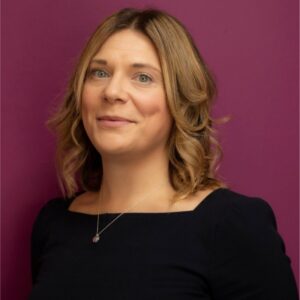Buying a home is an exciting milestone, but just before you dive into Rightmove listings or start booking viewings, it’s important to pause and ask a vital question: Am I actually ready to apply for a mortgage?
This question isn’t just about whether you have a deposit saved. It’s about your overall financial health, stability, and how you present yourself to a lender. And the truth is, many people are closer to mortgage readiness than they think, but they just don’t know it yet.
Let’s explore what it really means to be “in a position” to apply for a mortgage, and what steps you can take if you’re not quite there yet.
Understanding What Lenders Look For
Lenders assess mortgage applications based on a few key pillars: income, credit history, deposit, affordability, and stability. Each of these areas contributes to how confident a bank or building society feels about lending you what could be hundreds of thousands of pounds.
Take Adam and Ella, for example, a young couple we worked with recently. They had secure jobs, no debt, and a 10% deposit saved. They weren’t sure if they’d be seen as “ready.” After a quick review of their documents and financial position, we reassured them they were in a strong place to apply. Then just six weeks later, they had an offer accepted on their first home.
Sometimes, all it takes is that initial conversation to bring clarity.
Deposit: More Than Just a Number
It’s easy to get stuck thinking you need a huge deposit. While it’s true that a larger deposit can open up better rates and more options, the minimum required is often just 5%. That said, a 10% or 15% deposit can sometimes offer more favourable terms.
Don’t forget: your deposit can come from various sources such as savings, gifted funds from family, Help to Buy ISAs, or even equity from a previous property. What matters most is that it’s well documented and from a legitimate source.
Income and Affordability: A Bigger Picture
Mortgage lenders don’t just look at what you earn, they want to know how affordable the mortgage will be once they factor in your spending. It’s not always about how much you earn, but how well it’s presented.
Lenders will typically run affordability checks that include:
- Your income (salary, bonuses, self-employed profits, benefits, pensions)
- Your regular outgoings (loans, childcare, credit cards, subscriptions)
- Future plans (maternity leave, career changes, etc.)
Credit Profile: What Does Your History Say?
Many people are put off applying for a mortgage because of past credit issues. Whether it’s a few missed payments, a default, or even a previous IVA, these don’t automatically disqualify you.
In fact, we’ve helped many clients secure mortgages after rebuilding their credit for just 12 to 24 months. The key is knowing which lenders are most understanding and what steps you can take to make yourself a more appealing applicant.
Before applying, we always suggest reviewing your credit report using tools like Experian or Equifax. We’ll walk through it with you, flag any issues, and work out what needs to be addressed.
Stability and Documentation
From a lender’s perspective, stability equals trust. If you’ve been in the same job for a while, live at the same address, and manage your finances responsibly, that ticks a lot of boxes.
But don’t worry if you’ve moved jobs recently or have a short address history. It’s all about how well the full picture adds up. We had a client last year who had moved twice in 12 months and switched jobs, but because she had a strong deposit and clean credit, we still found her a competitive deal.
What you’ll need in most cases:
- Proof of income (payslips or self-employed accounts)
- Proof of deposit (bank statements or gift letters)
- ID and proof of address
- Recent bank statements
Pre-Application Confidence: Get an Agreement in Principle
If you’re unsure whether you’re ready, one of the most useful steps is securing an Agreement in Principle (AIP). This is a statement from a lender saying they’re willing to lend a certain amount based on the information you’ve provided.
It’s not a guarantee, but it’s a strong indicator and it can give you confidence when viewing properties or making offers.
At HFA Mortgage & Protection, we offer this as a free, no-obligation service to help clients understand where they stand before jumping into the market.
When You’re Not Quite Ready – But Close
Not everyone we speak to is ready to apply today, and that’s okay. Our job is to help you get there.
We recently worked with Tom, a contractor who had only just gone self-employed. He wasn’t eligible with most lenders at the time, but we worked with him over six months to build his records, improve his credit, and prepare his finances. When the time came, he was approved with a mainstream lender and moved into his new flat shortly after.
Sometimes, it’s about the long game and having someone help guide you through it.
Let’s Explore Your Options
If you’re thinking about buying your first home or moving up the property ladder, the best thing you can do is start with a conversation. Getting expert mortgage advice early ensures you’re ready to act when the time comes.
At HFA Mortgage & Protection, we’re proud to offer personalised, jargon-free mortgage advice tailored to your unique goals and circumstances. Whether you’re months away from applying or ready to go now, we’re here to help you prepare, plan, and find the most suitable mortgage with confidence.
Let’s chat about what’s possible for you: https://hfassociates.uk
Important Notice:
There may be a fee for mortgage advice. The precise amount of the fee will depend upon your circumstances but will range from £195 to £1500, and this will be discussed and agreed with you at the earliest opportunity.
Your home may be repossessed if you do not keep up repayments on your mortgage.





